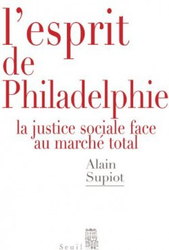Updated: Sept. 25, 2012 (Initial publication: June 9, 2012)
Sectorial Analysis

TRANSLATED SUMMARIES
ENGLISH
In France, the Minister of Ecology has issued an Order to facilitate the
purchase of electricity generated by wind. The text is being challenged
before the "Conseil d’Etat" (State Council) for illegality, in that it
constitutes state aid. The State Council considers the matter serious
enough to suspend the proceeding and seized the Court of Justice of the
European Union of a preliminary question on 15 May 2012.
FRENCH
En France, le ministre de l’Ecologie a émis une ordonnance afin de faciliter l’achat de l’électricité produite par le vent. Le texte est actuellement contestée devant le «Conseil d’Etat" (Conseil d’Etat) pour cause d’illégalité, en ce qu’elle constitue une aide d’Etat. Le Conseil d’Etat considère que l’affaire suffisamment grave pour suspendre la procédure et saisi la Cour de justice de l’Union européenne d’une question préjudicielle le 15 mai 2012.
Updated: Sept. 25, 2012 (Initial publication: Dec. 12, 2011)
Sectorial Analysis

Translated Summaries
In The Journal of Regulation the summaries’ translation are done by the Editors and not by the authors
ENGLISH
On July 28, 2011, the European Court of Justice rejected an appeal by an Italian digital terrestrial broadcaster against a ruling of the European General Court, which had also rejected an appeal against the European Commission’s condemnation of Italy for having subsidized the purchase or rental by consumers of equipment for the reception of digital terrestrial television broadcast signals, since this was an indirect provision of state aid to the broadcasters.
FRENCH
Le 28 juillet 2011, la Cour de Justice de l’Union Européenne a rejeté un appel interjeté par un radiodiffuseur italienne numérique terrestre contre une décision de la Cour européenne de première instance, qui avait également rejeté un recours contre la condamnation prononcée par la Commission européenne de l’Italie pour avoir subventionné l’achat ou la location par le consommateurs d’équipements pour la réception de télévision numérique terrestre des signaux de télédiffusion, puisque ce fut une prestation indirecte, constitutive d’aides d’Etat au bénéfice des radiodiffuseurs.
SPANISH
El 28 de julio de 2011, el Tribunal Europeo de Justicia rechazó una apelación de un emisor italiano digital terrestre contra una resolución del Parlamento Europeo y del Tribunal General, que había rechazado también un recurso de apelación contra la condena de la Comisión Europea de Italia por haber subvencionado la compra o el alquiler de los consumidores de los equipos para la recepción de señales digitales terrestres de televisión, ya que esta era una disposición indirecta de las ayudas estatales a las emisoras.
DEUTSCH
Am 28. Juli 2011 hat der Gerichtshof der Europäischen Union eine Beschwerde von einem italienischen digitalen terrestrischen Sender zurückgewiesen gegen eine Entscheidung des Europäischen Gerichts Erster Instanz, die auch abgelehnt hatte Einspruch gegen der Überzeugung, in der Europäischen Kommission Italien nach dem Kauf oder Leasing von der Consumer-Geräten zum digitalen terrestrischen Fernsehsignale empfangen subventioniert haben, da es ein indirekter Nutzen war, um eine staatliche Beihilfe für Broadcaster.
ITALIAN
Il 28 luglio 2011, la Corte di Giustizia Europea ha respinto un appello di emittente italiana di digitale terrestre promosso contro una decisione della Corte generale europea. Anche tale Corte aveva respinto l’appello promosso contro la decisione della condanna dello Stato italiano per aver sovvenzionato l’acquisto o l’affitto da parte dei consumatori di un decoder, in quanto costituirebbe un aiuto statale indiretto alle emittenti.
.................
Other translations forthcoming.
Updated: Sept. 19, 2012 (Initial publication: July 12, 2012)
Sectorial Analysis

Translated summaries
ENGLISH
France and Italy had subsidized rail alpine highway, but the project was behind schedule. Thus, an prolongation of governments support was necessary. The European Commission admittedit in its decision of 11 June 2012, because States are committed the concession will be effective on June 30, 2013 and mostly because this mode of transport will be an alternative to transporting goods.
FRENCH
La France et l’Italie avaient subventionné l’autoroute ferroviaire alpine, mais le projet a pris du retard. Ainsi, une prolongation du soutien des gouvernements était nécessaire. La Commission européenne l'a admis dans sa décision du 11 Juin 2012, parce que les États se sont engagés et que la concession sera effective le 30 juin, 2013, surtout parce que ce mode de transport sera une alternative au transport routiers par camions des marchandises.
Updated: Sept. 10, 2012 (Initial publication: June 2, 2012)
Sectorial Analysis
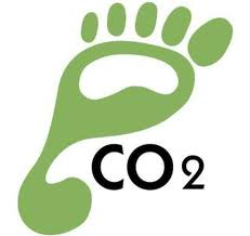
Updated: July 16, 2012 (Initial publication: July 4, 2012)
Breaking news

Updated: July 13, 2012 (Initial publication: July 13, 2012)
Contributions

Updated: June 20, 2012 (Initial publication: June 14, 2012)
Breaking news
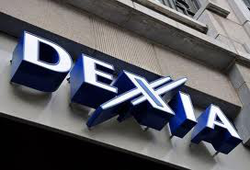
Updated: June 19, 2012 (Initial publication: June 14, 2012)
Releases : Neutrality in Systems of Economic Regulation

TRANSLATED SUMMARIES
ENGLISH
"Acting in a neutral way" is an oxymoron. "Companies often require however that States use their powers in a neutral way (eg tax neutrality). In regulated sectors, some are right or even duty , of not being neutral. Firstly, it is the State, which requires the market for other purposes, other temporalities and other values. Secondly, they are also the "crucial operators", which are sort of regulators of second degree, such as transmission system operators or companies capital markets firms. The difficulty increases when the systeme requires neutrality of regulators and judges, when first build economic policy and the second create jurisprudence. Their consistency, impartiality and rationality can create an objectifiable neutralitys
FRENCH
«Agir de façon neutre» est un oxymoron. «Les entreprises ont souvent besoin, cependant, que les États utilisent leurs pouvoirs de manière neutre (neutralité fiscale par exemple).
Dans les secteurs réglementés, certains ont le droit ou même le devoir de ne pas être neutre. Tout d’abord, c’est l’État, qui insère le marché à d’autres fins, d’autres temporalités et d’autres valeurs. En second lieu, ils sont aussi les «opérateurs crucial», qui sont des sortes de régulateurs du second degré : par exemple les opérateurs de réseaux de transport ou de entreprises de marchés financiers.
La difficulté augmente lorsque le systeme économique et politique exige la neutralité des autorités de régulation et des juges, alors que les premiers construisent la politique économique et les seconds construisent la jurisprudence. Le respect qu'ils doivent avoir de l'impartialité et d'une rationalité suffisamment objectivables pourra permettre cette objectivité requise.
Updated: June 19, 2012 (Initial publication: June 14, 2012)
Contributions

Updated: June 18, 2012 (Initial publication: June 10, 2012)
Breaking news
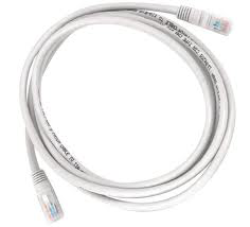
Updated: June 12, 2012 (Initial publication: June 11, 2012)
Contributions

Dec. 20, 2011
Thesaurus : 06. European Commission
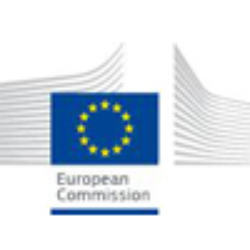
Commission decision of 20.12.2011 on the application of Article 106(2) of the Treaty on the Functioning of the European Union to State aid in the form of public service compensation granted to certain undertaking entrusted with the operation of services of general economic interest
July 23, 2004
Thesaurus : 05. Court of Justice of the European Union
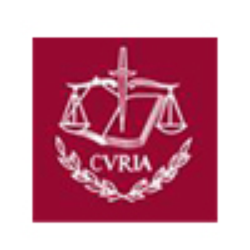
2003, 24 July, Almark Trans GmbH and Gegierhngzpräsidium Magdeburg v/ Nahverkehrsgesellschaft
May 15, 2012
Thesaurus : 03. French Council of State
Complete reference: CE, May 15, 2012, Association Vent de colère! Fédération nationale et autres, n°324852
Updated: Jan. 16, 2012 (Initial publication: Oct. 10, 2011)
Translated Summaries

Updated: Jan. 13, 2012 (Initial publication: Jan. 11, 2012)
Contributions
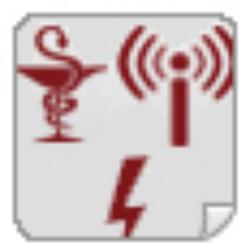
Updated: Dec. 21, 2011 (Initial publication: Dec. 12, 2011)
Contributions

Updated: Dec. 21, 2011 (Initial publication: Nov. 30, 2011)
Contributions

Updated: Dec. 9, 2011 (Initial publication: Oct. 10, 2011)
Contributions

Updated: Dec. 6, 2011 (Initial publication: Oct. 10, 2011)
Sectorial Analysis

Translated Summaries
In The Journal of Regulation the summaries’ translation are done by the Editors and not by the authors
ENGLISH
Thematic Report (Gambling): The European Commission, despite specific taxation measures, has approves the Danish law of liberalisation of online gambling.
On September 20th 2011, the European Commission declared the new law liberalising gambling in Denmark in line with EU rules. This law creates lower taxes for online casinos than for land-based one, and the Commission declared it compatible with European state aid rules, since the positive effects of the liberalisation of the sector outweigh potential distortions of competition.
ITALIAN
Relazione tematica (Scommesse): La Commissione europea, nonostante i provvedimenti di imposizione specifici, ha approvato la legge danese di liberalizzazione di scommesse online.
Il 20 settembre 2011, la Commissione europea ha dichiarato che la nuova legge che prevede la liberalizzazione delle scommesse in Danimarca è conforme alla legislazione europea. Questa legge crea delle tasse meno importanti per i casino online rispetto a quelle che colpiscono i casino fisicamente esistenti. La Commissione ha dichiarato che tale legislazione è conforme alla legislazione europea in materia di aiuti di stato, in quanto gli effetti positivi della liberalizzazione di questo settore hanno un’importanza maggiore delle potenziali distorsioni della concorrenza.
.....................
Other translations forthcoming.

